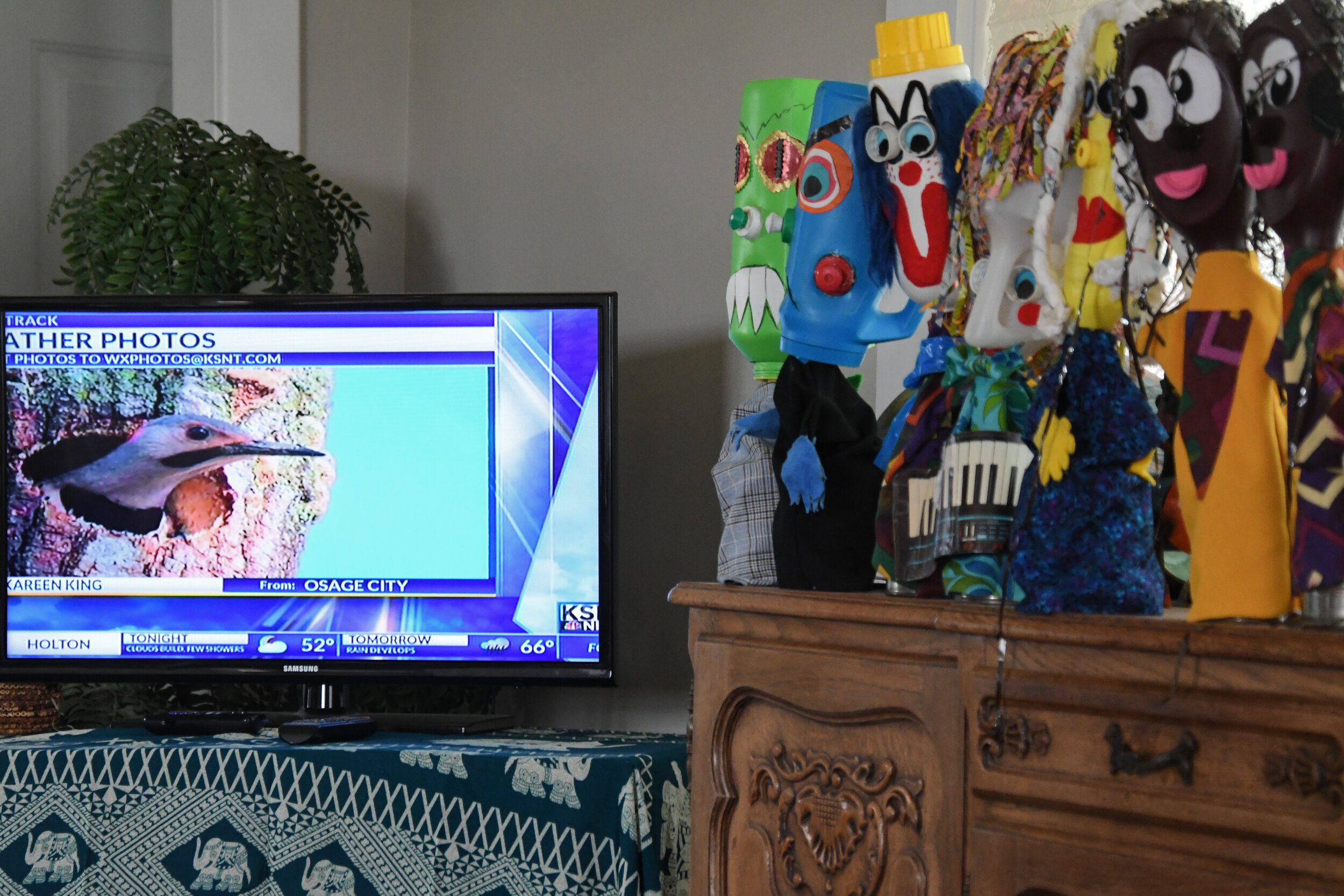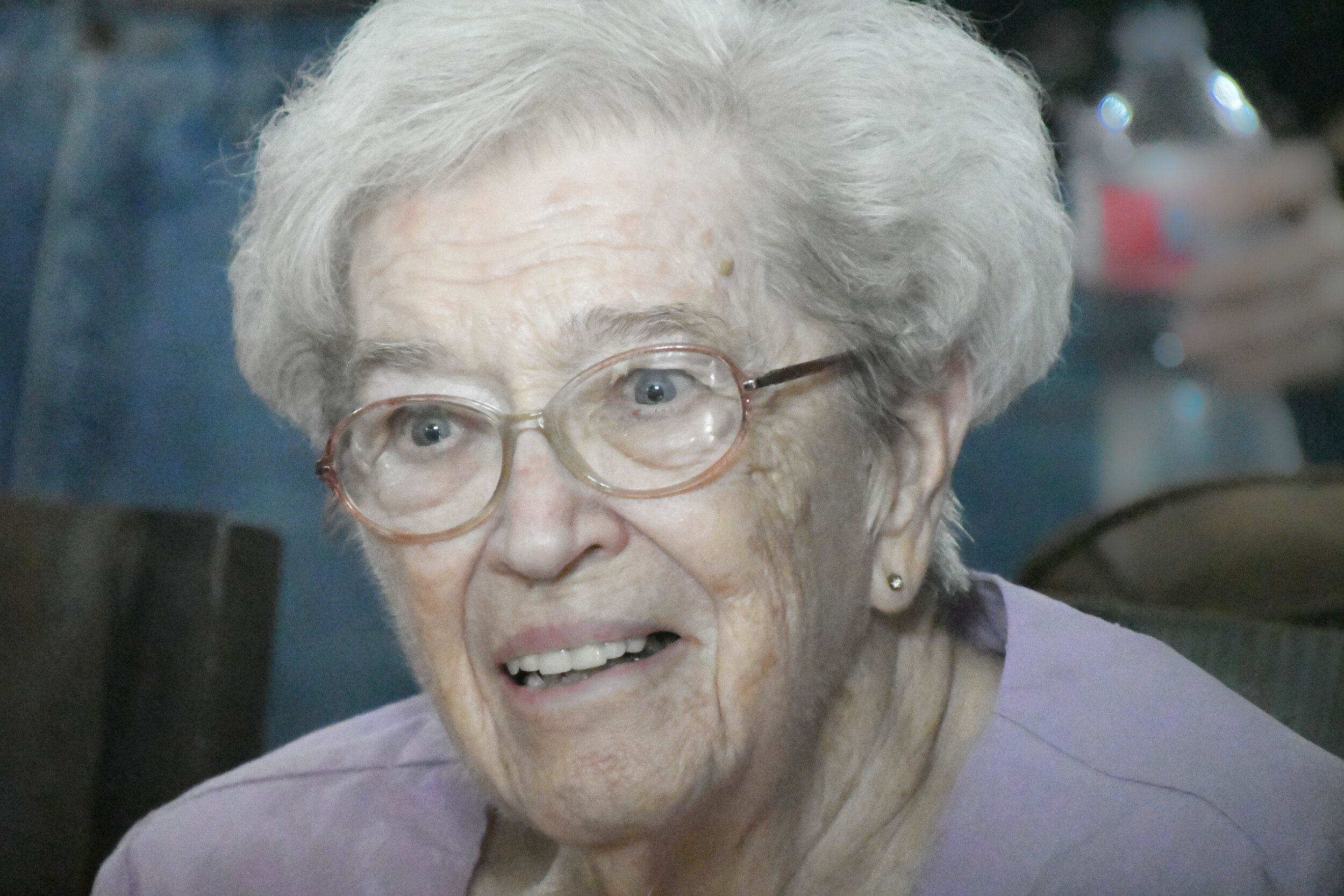Cardinal - Photo by Kareen King
This is for all the procrastinators and late bloomers and everyone who feels, "It's too late for me." Oh, and the cardinal showed up outside my dining room window as I was finishing writing this story. I hope it inspires somebody.
Lies on Couch
By Kareen King
My mom was a storyteller, not a professional one, but one who repeated sad tales from her childhood. We heard them over and over again – mostly stories of feeling neglected and unaffirmed. It was apparent she had unresolved issues.
I reflected on some of the stories my mom mentioned most often, but there was a specific one that stood out. My grandmother, her mother, was an extraordinary homemaker who was well organized. When my mom was a little girl, Grandma stepped into my mom’s bedroom, opened a dresser drawer, and discovered everything in disarray . . . as usual. Disgusted, she scolded her and said something like, “Oh Marilyn, what are we going to do with you?” instead of a preferred, “Marilyn, why don’t we go through your dresser drawer together and I’ll teach you how to organize.”
Something about that incident freeze-framed in my mother’s soul not only the notion that her disorganization was shameful, but that there was no hope for it. From that moment, my mom’s fixed way of being was that of helplessness. She often looked dazed and confused. Whenever she and my dad would leave on vacation, Grandma would travel to our home and stay a week or two. We loved having her there because she would clean and reorganize everything. I once heard her mutter as she organized piles of folded towels in a linen closet, “Oh Marilyn, what am I going to do with you?” She knew everything would fall back into disarray in a couple weeks.
My childhood recollections include snapshots of my mother lying on the couch in a state of overwhelm, even though she didn’t work outside the home, and seldom participated in my school activities. Chaos was the norm in my household of origin. It was a contributing factor toward the end of her marriage of 25 years and which unraveled our family. But the divorce forced her off the “couch.” She got a job as a real estate agent and raised my youngest brother and sister on her own while the rest of us were off to college.
Fast forward several years to a time when I was a young mother and shortly after the release of the epic film, Dances with Wolves. My youngest brother and sister and I sat on the carpeted floor of my living room while our mom was lying on the couch. Suddenly my brother had what he thought was a great idea. He said, “Let’s go around and give each other names like those in Dances with Wolves. You know, names like “Wind in his Hair” and “Stands with a Fist.”
“I’ll start,” declared my mom with enthusiasm. “I’ve got one for Kareen. How about, ‘Must Have Own Way.’”
Slightly taken aback, I ignored my instincts and retorted, “I’ve got one for Mom. ‘Lies on Couch.’”
My mom instantly burst into sobs as my brother and sister glared in my direction. I had struck a well of personal shame that ran deeper than I realized.
Thirteen years after my parents’ divorce, my mom found love again and got remarried, continued working as a real estate agent, and managed two antique booths. And then, when she was 72, she got breast cancer. I figured her fixed state of helplessness would take on a new dimension and we would expect to hold her hand throughout the journey.
Instead, she surprised us all. I attended only one chemotherapy appointment with her because she insisted she was fine on her own. Over the next decade, my mom’s cancer created many plot twists in her life, yet she rarely ever complained or asked for pity. And in the midst of it all, she continued to manage her antique booths. Yet, her obsession with buying and selling antiques and collectibles took its toll on me. I visited her less and less because the house became increasingly undesirable to enter due to the enormous amount of possessions she had accumulated. Sometimes she would mention that her children didn’t visit her very often. I didn’t have the heart to tell her why. My siblings and I dreaded the day my mom would pass away and leave us hanging with this monstrous situation she had created.
And then one day, the miraculous happened. At the age of 80 my mom got off the proverbial couch and with very little assistance from her children, moved from her home she had lived in for 45 years, and upsized with her second husband to a glorious new home. Most of her possessions were sold at auction, donated to local charities, or hauled off.
I remember her words; “I want my children to be proud of me.” But the context from which she spoke them didn’t hit me in the moment. Though I understood her wish, I wasn’t experiencing the feelings she wished for. In spite of my love for her, I was not necessarily proud of her, because I couldn’t let go of my perception that she was still a prisoner of the couch.
Over the next two years, her cancer spread throughout her body. Though I had earlier advised she make a will, dragging her to a financial seminar for moral support, she resisted, not realizing it would only lead to confusion for the family. For Mom, sometimes ignorance was bliss. Thankfully, after the insistence of my youngest sister and me, she gave in and made her will just a few months before she died. It was nothing short of miraculous.
It took awhile before her words struck me. After she was gone, I realized that my beautiful mother did not leave me with a legacy of helplessness. She demonstrated that it’s never too late to get off the couch. And it’s never too late to make your children proud. I hope she knows that.
















